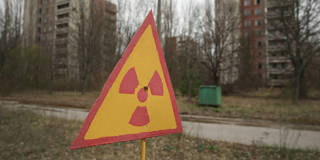While it is tempting to think that Ukraine would have remained safe if only it had held onto its Soviet-era nuclear warheads, that framing of the issue is too simplistic. Ultimately, all countries would benefit more in the long term from a strong non-proliferation regime than from possessing their own arsenals.
CAMBRIDGE – When the Soviet Union collapsed in 1991, Ukraine inherited part of its nuclear arsenal. But in the 1994 Budapest Memorandum, Ukraine agreed to return these weapons to Russia in exchange for “assurances” from Russia, the United Kingdom, and the United States that its sovereignty and borders would be respected. Russia brazenly violated this promise when it annexed Crimea in 2014, and tore up the Memorandum with its full-scale invasion of Ukraine on February 24. Many observers have concluded that Ukraine made a fateful mistake by agreeing to surrender its nuclear arsenal (once the world’s third largest). Are they right?

CAMBRIDGE – When the Soviet Union collapsed in 1991, Ukraine inherited part of its nuclear arsenal. But in the 1994 Budapest Memorandum, Ukraine agreed to return these weapons to Russia in exchange for “assurances” from Russia, the United Kingdom, and the United States that its sovereignty and borders would be respected. Russia brazenly violated this promise when it annexed Crimea in 2014, and tore up the Memorandum with its full-scale invasion of Ukraine on February 24. Many observers have concluded that Ukraine made a fateful mistake by agreeing to surrender its nuclear arsenal (once the world’s third largest). Are they right?